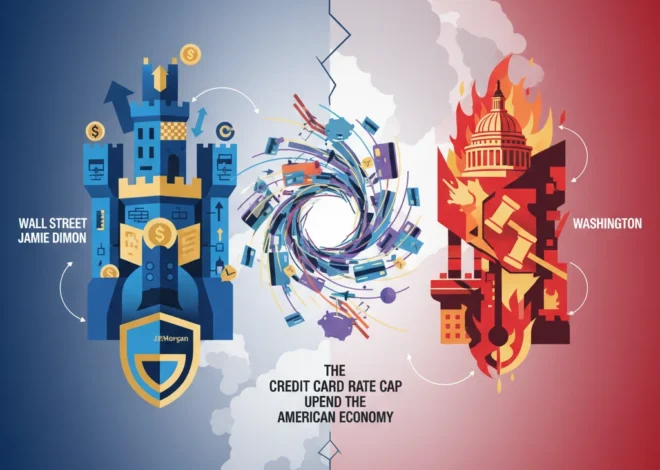
The Prancing Horse Pulls the Reins: Why Ferrari’s UK Strategy is a Masterclass in Economic Scarcity
The Unmistakable Roar of a Shifting Market
There are few sounds as evocative as the roar of a Ferrari engine. It’s a symphony of power, precision, and, above all, exclusivity. For decades, the Italian marque has been more than just a car manufacturer; it is a curator of dreams, a symbol of ultimate achievement, and a surprisingly resilient asset class. However, the streets of London may soon hear that roar a little less often. In a move that sent ripples through the worlds of high finance and luxury goods, Ferrari has deliberately cut its vehicle allocations to the United Kingdom. This isn’t a sign of weakness or a production issue. It is a calculated, strategic masterstroke in response to a seismic shift in the UK’s economic landscape, offering a profound lesson in brand preservation and the potent power of scarcity.
The core reason, as reported by the Financial Times, is to protect the all-important residual values of its vehicles. This decision was triggered by the UK government’s plan to abolish the long-standing “non-domiciled” (non-dom) tax regime. To understand the gravity of Ferrari’s move, we must look beyond the gleaming bodywork and delve into the intricate interplay between government policy, wealth migration, and the delicate economics of desire.
The Catalyst: Unpacking the UK’s “Non-Dom” Shake-up
For over two centuries, the UK’s non-dom tax status has been a powerful magnet for the global elite. In simple terms, it allowed UK residents whose permanent home (“domicile”) is abroad to avoid paying UK tax on their foreign income and gains, provided they didn’t bring that money into the country. This created a highly attractive environment for international business leaders, investors, and ultra-high-net-worth individuals to base themselves in cities like London.
However, in a major policy shift, the UK government announced plans to scrap this regime, replacing it with a less generous system. According to a detailed analysis by the Institute of Chartered Accountants in England and Wales (ICAEW), the new rules will significantly increase the tax burden on long-term foreign residents. The immediate consequence? A potential exodus of the very demographic that constitutes the core customer base for brands like Ferrari. These are individuals for whom purchasing a £250,000 supercar is not a once-in-a-lifetime event, but a regular feature of their lifestyle and investment portfolio.
Ferrari’s management, demonstrating sharp economic foresight, anticipated the ripple effect: a sudden drop in demand from this key group could lead to an oversupply of nearly-new Ferraris on the secondary market. For a brand built on exclusivity, an oversupply is the ultimate poison.
The Aadhaar Effect: Why the UK is Eyeing India's Digital ID to Revolutionize Its Financial Sector
The Economics of Exclusivity: Why Residual Value is King
For most consumer goods, depreciation is a fact of life. A new television, laptop, or family sedan loses a significant chunk of its value the moment it’s purchased. In the world of ultra-luxury, and particularly for Ferrari, the opposite is often true. The goal isn’t just to sell a car; it’s to ensure that the car remains a valuable asset for its owner years down the line. This is the concept of “residual value”—the market value of a vehicle at a future point in time.
A high residual value is the ultimate testament to a brand’s strength. It signals to potential buyers that their purchase is not merely an expense but a sound piece of investing. It justifies the colossal price tag and fuels the mythology of the brand. When the secondary market is flooded with cars, sellers are forced to compete on price, driving values down. This erodes buyer confidence, damages the brand’s premium image, and can spiral into a long-term decline.
Ferrari’s decision to reduce its UK allocation is a direct intervention to prevent this. By artificially constraining supply, they ensure that the number of new cars entering the market remains below the (now slightly reduced) demand. This props up prices in the used market, protects the investment of existing owners, and maintains the allure for future buyers. It’s a classic lesson in supply-side economics, applied with surgical precision.
To illustrate the dramatic difference in value retention, consider the following simplified comparison:
| Vehicle Type | Market Strategy | Year 1 Value | Year 2 Value | Year 3 Value |
|---|---|---|---|---|
| Standard Premium Sedan | Volume-Based (High Supply) | 75% of Original Price | 60% of Original Price | 45% of Original Price |
| Ferrari Supercar | Scarcity-Based (Low Supply) | 95% of Original Price | 90% of Original Price | 88% of Original Price |
| Limited Edition Ferrari | Extreme Scarcity (Very Low Supply) | 110% of Original Price | 125% of Original Price | 140% of Original Price |
A Masterclass in Long-Term Brand Management
This strategy is deeply embedded in Ferrari’s DNA. The company’s legendary founder, Enzo Ferrari, is often credited with the philosophy of always building one less car than the market demands. This principle has guided the company for over 75 years, transforming it from a racing team into a global luxury icon with a market capitalization that rivals automotive giants who produce millions of cars per year (source).
This proactive reduction in UK deliveries is a modern application of Enzo’s creed. While other companies might be tempted to push for short-term sales volume to meet quarterly targets, Ferrari is playing the long game. The leadership understands that the company’s value, and indeed the performance of its stock on the stock market (NYSE: RACE), is inextricably linked to its brand equity. A temporary dip in UK sales is a small price to pay to protect the multi-billion-dollar brand value that has been so meticulously built over decades.
This approach is mirrored by other titans of luxury. Hermès famously controls the supply of its Birkin and Kelly bags, creating multi-year waiting lists that only enhance their desirability. Rolex’s scarcity of popular steel sports models has created a secondary market where watches trade for double or triple their retail price. In this elite club, availability is a liability, and waiting is a status symbol.
Global Markets in Motion: From Mumbai's New Airport to the Fed's Next Move
Broader Implications for Investors and the Global Economy
Ferrari’s decision is not an isolated event in the automotive world; it’s a significant data point for anyone involved in finance, investing, and economic analysis.
- For Investors: This move should be seen as a sign of shrewd and responsible management. It demonstrates a commitment to preserving long-term shareholder value over chasing fleeting sales figures. For those who invest in Ferrari (RACE) stock, it’s a reassurance that the brand’s core asset—its exclusivity—is being fiercely protected. It also highlights the resilience of top-tier luxury brands to regional economic downturns, as they can pivot allocations to stronger markets.
- For the UK Economy: This is a tangible consequence of a major policy decision. It signals a potential cooling of the UK’s ultra-luxury market, which could have knock-on effects for high-end real estate, luxury retail, and associated services. It serves as a real-world example of how tax policy can influence corporate investment and allocation decisions.
- For the Financial Sector: The world of wealth management and banking is paying close attention. Luxury cars, particularly rare Ferraris, are increasingly viewed as a tangible asset class for diversifying investment portfolios. A strategy that protects the value of these assets is crucial for the advisors who recommend them and the clients who own them.
Looking ahead, this intersection of physical high-value assets and financial strategy brings emerging technologies into focus. The principles of scarcity, verified ownership, and value preservation that Ferrari is championing are central to the world of financial technology. One can easily envision a future where blockchain technology is used to create an immutable digital ledger for each vehicle, tracking its provenance, service history, and ownership. This could revolutionize the secondary market, eliminating fraud and providing perfect transparency for investors and collectors engaged in high-value trading of these assets.
The Final Lap: Strategy Over Speed
Ferrari’s decision to cut UK deliveries is a powerful reminder that in the world of ultra-luxury, the race is not always won by the swift. It is won by the strategic. By prioritizing the long-term health of its brand and the residual value of its products over short-term sales volume, Ferrari is not just navigating a complex economic shift; it is reinforcing the very principles that made it a legend. It’s a calculated, confident, and quintessentially Ferrari move—a demonstration that true power lies not in how many cars you can sell, but in how many you choose not to.


